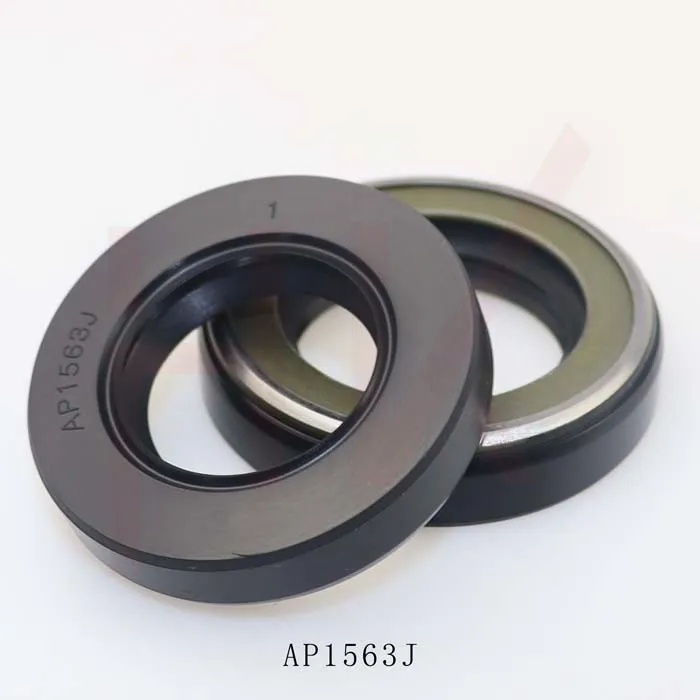नवम्बर . 06, 2024 00:28 Back to list
Different Types of Hydraulic Oil Seals and Their Applications in Machinery
Understanding Hydraulic Oil Seal Types
Hydraulic oil seals play a critical role in the performance and reliability of hydraulic systems. These sealing components prevent the leakage of hydraulic fluids and protect internal components from contamination. With a variety of designs and materials available, choosing the correct hydraulic oil seal type is crucial for ensuring optimal operation and longevity of hydraulic equipment. This article will explore the different types of hydraulic oil seals, their applications, and considerations for selection.
Types of Hydraulic Oil Seals
1. O-Rings O-rings are one of the most common types of hydraulic seals. They are circular in shape, usually made from elastomers such as nitrile or Viton. O-rings can be used in static applications (where there is no relative movement between parts) and dynamic applications (where parts move against each other). Their simplicity and effectiveness make them a go-to choice for many hydraulic systems.
2. U-Cups U-cup seals, also known as U-seals, have a U-shaped cross-section that allows them to create a tight seal when compressed. These seals excel in dynamic applications with bidirectional motion, making them suitable for rod and piston sealing in hydraulic cylinders. U-cups can be made from various materials, including rubber and polyurethane, which provide enhanced wear resistance.
3. Lip Seals Lip seals, also known as radial shaft seals or oil seals, consist of a flexible lip that contacts the shaft. They provide an excellent sealing solution against both internal pressure and external contaminants. Lip seals are commonly used in hydraulic motors and pumps, where they effectively handle a range of temperatures and pressures.
4. Flat Seals Flat seals are generally used in static applications between flanges where two surfaces need to be tightly sealed. They can be made from a variety of materials, including rubber, metal, or composite materials. Flat seals are common in hydraulic systems where leakage prevention is crucial for maintaining system integrity.
5. Bellows Seals Bellows seals are specially designed to accommodate axial and angular misalignment in rotating equipment. Their flexible nature allows them to maintain a seal even under changing conditions. These seals are often used in applications that require a higher degree of flexibility, such as pumps and compressors.
Material Considerations
When selecting hydraulic oil seals, the choice of material is paramount. Common materials include
hydraulic oil seal types

- Nitrile Rubber (NBR) Known for its oil resistance and durability, NBR is widely used in hydraulic applications
. - Fluoroelastomer (FKM) This material offers superior chemical resistance and is ideal for high-temperature applications.- Polyurethane Polyurethane seals provide great wear resistance and are suitable for hydraulic applications where there is high abrasion.
- PTFE (Teflon) PTFE seals are highly resistant to chemical corrosion and high temperatures, making them suitable for aggressive hydraulic fluids.
Choosing the Right Seal
Selecting the right hydraulic oil seal type depends on several factors
- Application Requirements Consider the operating environment, pressure levels, temperature ranges, and compatibility with hydraulic fluids.
- Motion Type Identify whether the application requires static or dynamic sealing, and if dynamic sealing, whether it involves reciprocating or rotary motion.
- Maintenance and Replacement Evaluate the ease of installation and maintenance, as well as the frequency of seal replacements.
Conclusion
Understanding the different types of hydraulic oil seals and their materials is essential for anyone involved in the design, maintenance, or operation of hydraulic systems. Each seal type offers unique benefits and may suit specific applications better than others. By carefully considering the operating conditions and selecting the appropriate seal, engineers can enhance the performance, reliability, and service life of hydraulic systems, ensuring smooth and efficient operation across various applications in industries such as manufacturing, automotive, and aerospace.
-
The Trans-formative Journey of Wheel Hub Oil Seals
NewsJun.06,2025
-
Graphene-Enhanced Oil Seals: Revolutionizing High-Pressure Oil Sealing
NewsJun.06,2025
-
Future of Hydraulic Sealing: Advanced Intelligent TCN Oil Seals
NewsJun.06,2025
-
Don’t Let a Broken TCV Oil Seal Ruin Your Day
NewsJun.06,2025
-
Bio-Inspired Dust Seals for Better Sealing Performance
NewsJun.06,2025
-
Biodegradable and Sustainable Hydraulic Seal Materials
NewsJun.06,2025
-
Top Oil Seal Solutions for Your Industrial Needs
NewsMay.22,2025
Products categories
















